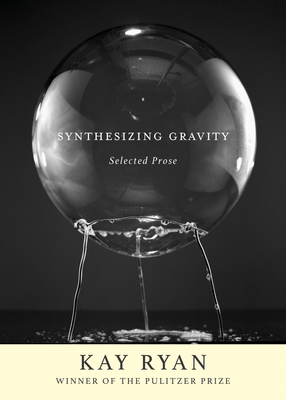What do you think?
Rate this book


208 pages, Hardcover
First published April 14, 2020
Something nonsensical in the heart of poetry is the very reason why one can't call poetry "useful." Sense is useful; you can apply things that make sense to other circumstances; you can take something away. But nonsense you can only revisit; its satisfactions exist in it, and not in application. This is why Auden and others can say with such confidence that poetry makes nothing happen. That's the relief of it. And the reason why nothing can substitute for it."I Go to AWP" reads like the field notes of an embittered anthropologist studying the habits and behaviors of a pack of writers during their annual migration to the AWP conference:
Soon after introductions, the dramatic differences in style and talent among the panelists begin to tear the table apart. In the best panels a happy anarchy ensues resulting in a shambles enjoyed by all."Specks" investigates what holds a poem together, what gets you from the first line to the last:
While writing a poem the hot wire of thought welds together strange chunks of this and that.This essay made me sit down and pour out two barely related thoughts I'd been thinking out into a poem, the first one I've written in a while, because poetry can be that, two thoughts, held together only by string and the fact that the writer has put them down, one after another, on the same page. Except you can never be sure if what you're doing is working, that is in the hands of the reader:
It can't completely combine the disparate elements and make a new element of them, but it can loosen the edges of mutually disinterested materials enough to bond them so that a serial lumpy going-on is achieved, crude emergency bridges made, say, of brush and old doors, just barely strong enough to get the thought across before the furious townspeople show up.
Because what I am transporting in my hands is both weightless and invisible, and because it must be held loosely, it is impossible to know at the time if I have carried it or if what I have done is a comical act, a person pretending to carry something carefully; a farcelike delicacy of manners.Here we're back to the idea of poetry as a form of nonsense. As she says in "Do You Like It?": "Though a person may be absolutely destined to be a poet, the person doesn't altogether understand this at first. For a long time the person just feels silly."
There has got to be a fanaticism—it doesn't matter, it can be the fanaticism of fastidiousness—but there has to be some private push the reader just can't follow all the way. There must be a crack in the poet of some sort. It has to be deep, privately potent, and unmendable—and the poet must forever try to mend it.The third section was filled with thrilling discoveries and was easily my favorite. Here she takes a poem and lovingly walks through it pointing out all the fantastic choices the poet made through the words and line breaks and rhymes, the way they build the meaning, and the feelings it makes her feel. Her scrutiny is wonderful and her insight persuasive, but she isn't bossy about it. She sounds like a cherished friend, sprawled on your couch, book in one hand, maybe a drink in the other, explaining why she loves a poem, how it works, why it's so good. If you have trouble understanding or enjoying poetry, read a few pieces in here. I particularly enjoyed her explication of Gerard Manly Hopkins's "Spring and Fall" and Philip Larkin's "Dublinesque."
My mother liked to tell how my brother as a little boy would sneak up on his Golden Book Hansel and Gretel, open it to the picture of the witch, and cry with fear. He came back again and again. My books are like that; I have reread them so often that they open to the witch.All in all, I enjoyed this a lot, and took many, many notes. Ryan's mind is fascinating, her metaphors exquisite, her prose weightless, and her ideas approachable. I didn't always agree with what she was saying, but then she doesn't always appear to agree with herself. She takes an idea, runs it out, and sees where it goes. It's a worthwhile journey.